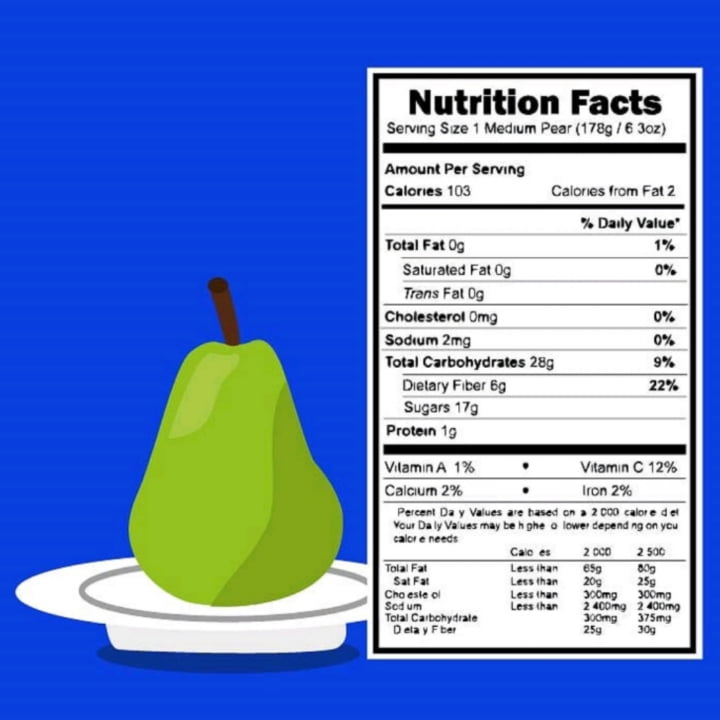By Ingrid De La O
Remember the 90’s? The world-wide-web was invented, Google was born and fanny packs were all the rage (and apparently still are).
It was also the time that fats were considered bad, like really bad. In fact, it was in fashion to buy fat-free everything, even fat-free mayo was a thing. Today the really bad crown has gone to carbohydrates while fats are rising in style by the keto industry. I’m glad the world changed its stance on fats. The myelin sheath that protects your nerves is coated in fat. Lack of high-quality fats break down this myelin sheath, and I’d be getting on your nerves right now.
The mentality today is counting calories and carbohydrates. We become mathematicians in some cases and excessively only tunnel vision at these two when looking at the back of the label. The problem is that it is not the macronutrients we should be scared of, but the quality of these macronutrients. The intake of toxins that are rising in our food consumption starting with the use of herbicides and pesticides–which cause a cascade of reactions in the body that promote fat storage, inflammation, and oxidative stress.
Let’s talk about a super-nutrient that most of America is deficient in– fiber. This super-nutrient is a type of carbohydrate. Gasp!
“Only 5% of people in the US meet the recommended daily target of 25 grams for women and 38 grams for men. That amounts to a population-wide deficiency — what nutritionists call the fiber gap”
Fiber is a super-nutrient since it’s a part of so many different foods. Eating a fiber-rich diet is associated with better gastrointestinal health and a reduced risk of heart attacks, strokes, high cholesterol, obesity, type 2 diabetes, even some cancers. That’s because fiber is fantastic in many ways: It slows the absorption of glucose — which evens out our blood sugar levels — and also lowers cholesterol and inflammation. More on that in a second…
But first let’s talk about other important stuff found in carbohydrates–antioxidants! These are abundant compounds primarily found in fresh fruits and vegetables, and evidence for their role in the prevention of degenerative diseases is continuously emerging.
Antioxidants and polyphenols are commonly found in nature bound to macronutrients such as carbohydrates, fats, and proteins. In fruits, and vegetables, carbohydrates are the major component that makes up their matrix. It turns out you need the fibers found in these fruits and vegetables to make the antioxidants bioavailable, that’s because once in your gut they bind to macromolecules such as fiber that improve their bioavailability.
Fiber is able to safely and effectively transport polyphenols to the colon where these compounds may have a protective effect on colon health as they are released during plant fiber fermentation by gut bacteria. That means the more nutrients you get for your gut bacteria including antioxidants, polyphenols, and fibers, the higher the reward for your system, this will boost your immunity, prevent signs of aging, and lend to better overall health and weight-loss success.
No more meal math: Eating high-quality foods—including plenty of high-quality fats—is the new golden rule of weight loss. When you eat the right quality and balance of whole foods, your body can do the rest on its own.
Processed carbohydrates—foods like chips, soda, crackers, and even white rice—digest quickly into sugar and increase levels of the hormone insulin. This is why the keto diet is so darn popular these days!
Sugar is not the problem, the problem is that these toxins found in these foods create inflammation and hinder your overall ability to use sugars as energy. Some of these toxins are artificial colors that create inflammation, rancid fats that are free radicals, artificial flavors that are hormone disruptors, preservatives that kill your gut bacteria, heavy metals that are a wrecking ball to your entire system, nano-plastics that disrupt the liver, brain, and gut, and lots of glyphosate that hurt your liver enzymes along with your thyroid for metabolism.
Antioxidants are the antidote to inflammation, the diversifier of your gut microbiome, the hormone balancers, and a long list of benefits.
So let’s save our math for counting sheep. And pay more attention to the toxins.






